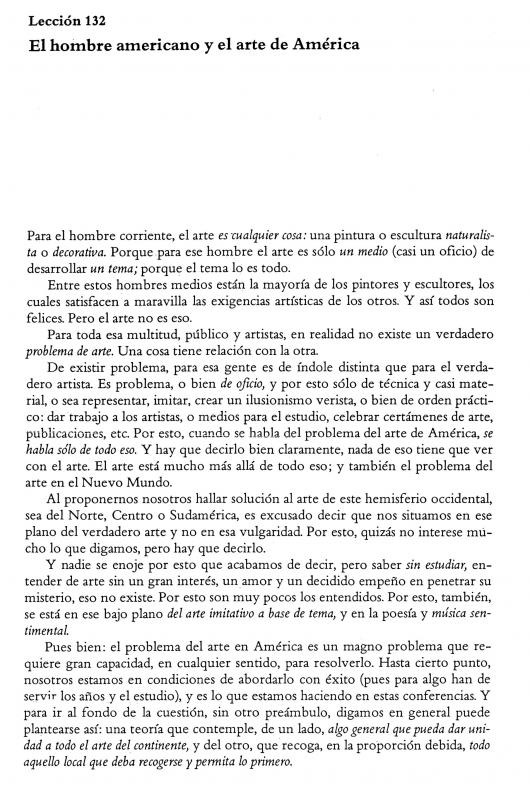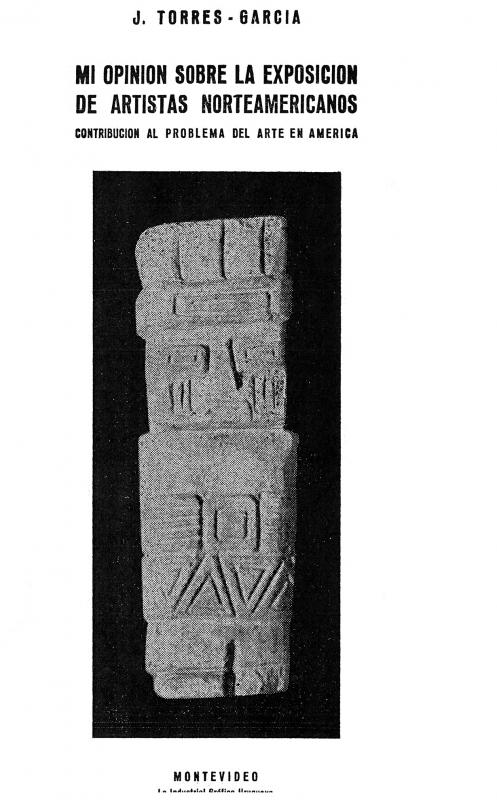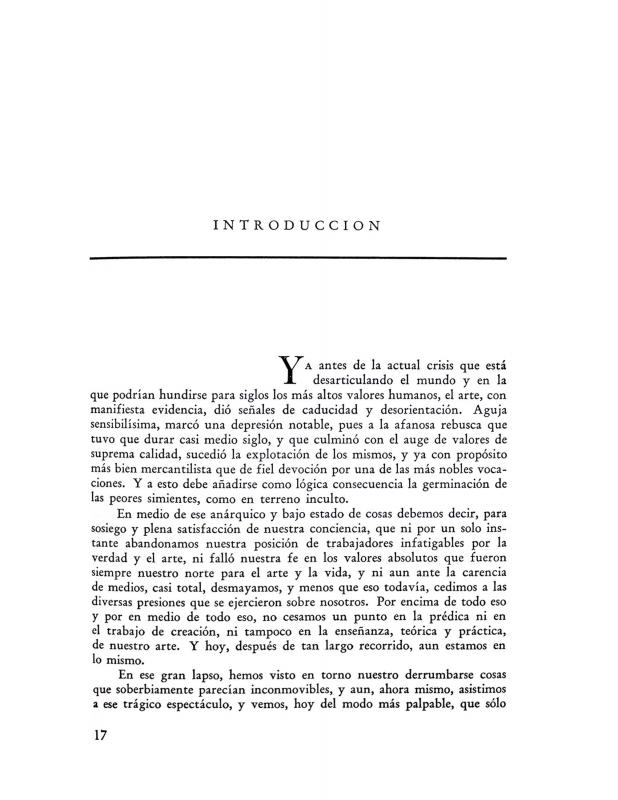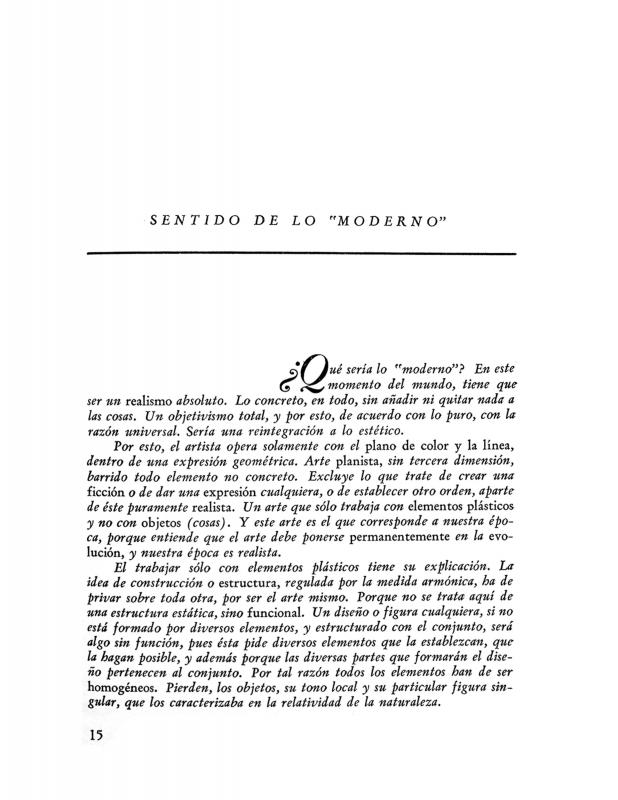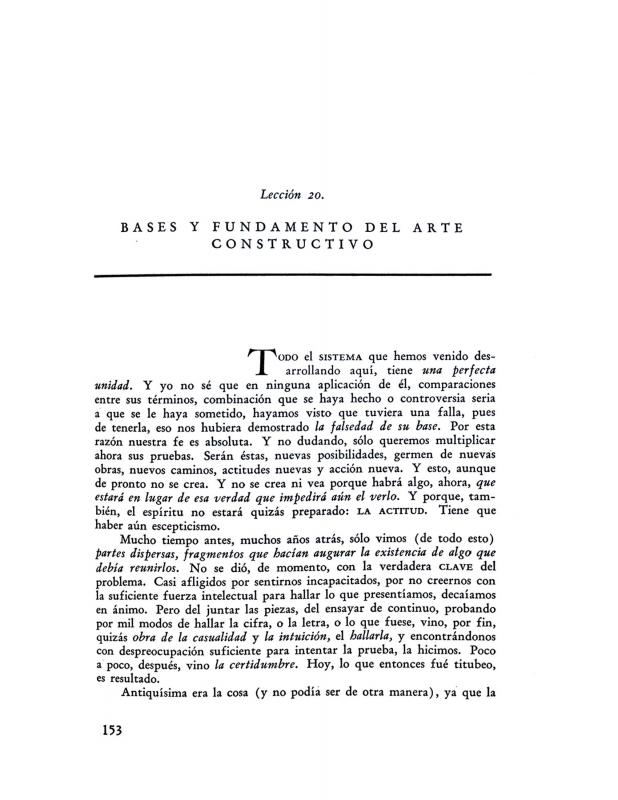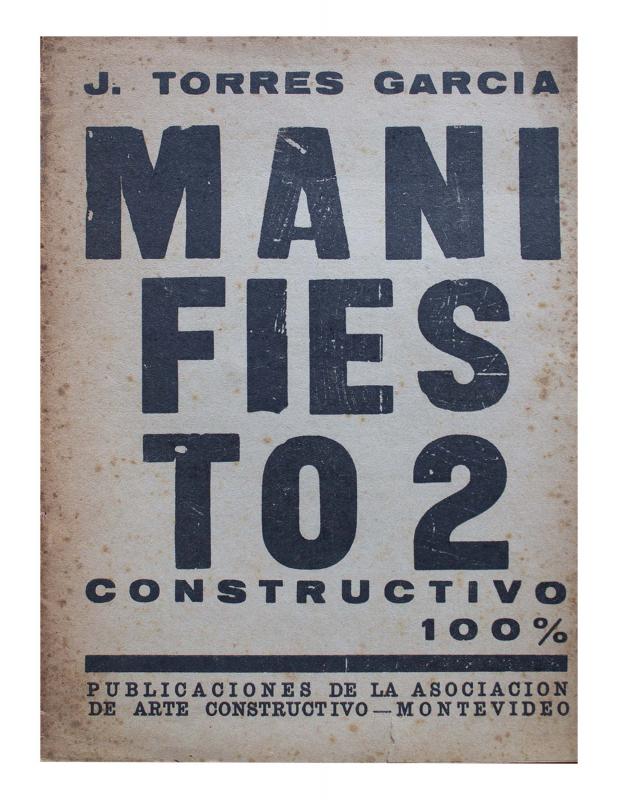When Joaquín Torres García (1874–1949) presented this talk, his strong polemics on art had not yet developed in the milieu of the ETAP (Escuela Taller de Artes Plásticas [School and Workshop in the Visual Arts]). He maintained a relatively good relationship with his local colleagues, whom he had considered in a transitional phase that adhered to European Postimpressionism, although without having gone through the experience of Cubism. On the other hand, an experience that he considered totally unnecessary at the time, because the trend had commenced in Europe and was somewhat transient without more importance than preparing the groundwork for an abstract geometric, and normative art. In his address, Torres García raised the duality of classicism and romanticism in the form of questioning something that went beyond the French academic permutations of the nineteenth century. It was a duality that he recognized in his own art throughout his life, although he was convinced that “the classical” (the art that obeys the universal rules sight and thought) is the nucleus of future Constructivist art. This is what he attempted to plant into the “virgin” territory of the Río de la Plata. In a sense, Torres García measured what is the “classical” or the final stage of evolution with a yardstick, and the degree of delay or of progress found among the Uruguayan artists who had not yet assumed this idea as a commitment to Constructivist art of universal character. [For additional reading, please refer to the ICAA digital archive for the following texts written by Joaquín Torres García: “Con respecto a una futura creación literaria” (doc. no. 730292), “Lección 132. El hombre americano y el arte de América” (doc. no. 832022), “Mi opinión sobre la exposición de artistas norteamericanos: contribución” (doc. no. 833512), “Nuestro problema de arte en América: lección VI del ciclo de conferencias dictado en la Facultad de Humanidades y Ciencias de Montevideo” (doc. no. 731106), “Introducción [en] Universalismo Constructivo” (doc. no. 1242032), “Sentido de lo moderno [en Universalismo Constructivo]” (doc. no. 1242015), “Bases y fundamentos del arte constructivo” (doc. no. 1242058), and “Manifiesto 2, Constructivo 100%” (doc. no. 1250878)].


